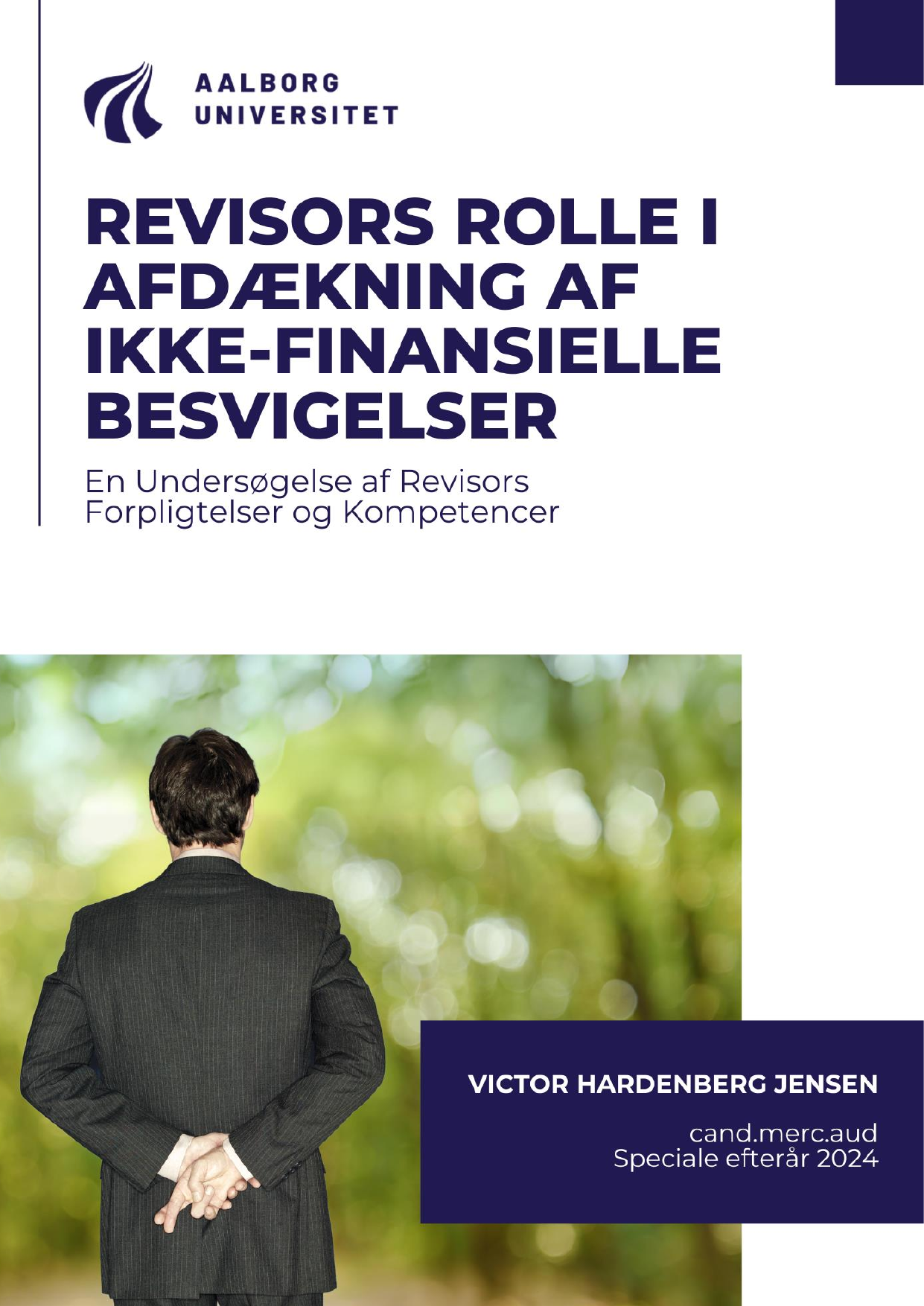
Revisors rolle i afdækning af ikke-finansielle besvigelser: En undersøgelse af revisors forpligtelser og kompetencer.
Oversat titel
The Auditor's Role in Detecting Non-Financial Fraud: An Examination of the Auditor's Responsibilities and Competencies.
Forfatter
Semester
4. semester
Uddannelse
Udgivelsesår
2024
Afleveret
2024-10-18
Antal sider
58
Abstract
This paper examines whether the auditor's current competencies are sufficient to detect and handle non-financial fraud, particularly in light of the new requirements under the Corporate Sustainability Reporting Directive (CSRD). The first part of the analysis reviews key fraud theories and the auditor's responsibilities, including ISA 240, which focuses on the auditor's role in identifying and responding to fraud. This theoretical framework is supplemented by an overview of national legislation governing the auditor's duties in Denmark. The focus then shifts to the requirements imposed by the CSRD on corporate sustainability reporting, and how auditors are expected to play a central role in ensuring the accuracy and reli-ability of these reports. The analysis explores how auditors must navigate new and more com-plex reporting requirements, including Environmental, Social, and Governance (ESG) indica-tors, double materiality assessments (DVV), and European Sustainability Reporting Standards (ESRS), which form the foundation for sustainability reporting under the CSRD. Understand-ing these standards is essential for detecting potential risks and inconsistencies in companies' non-financial information. The analysis further evaluates whether the theoretical education, including the cand.merc.aud. program and the SR Academy equips auditors with the necessary competencies to meet the new CSRD requirements. While these programs provide a strong foundation in traditional financial auditing and fraud detection, the research highlights certain gaps regarding ESG-related topics and sustainability reporting. This gap in the education system risks creating a mismatch be-tween the auditor's current skills and the new expectations, especially concerning the identifica-tion and handling of non-financial fraud. Despite covering fraud-related theory, the analysis concludes that the curriculum needs to be expanded to include a greater focus on ESG areas to meet CSRD requirements. However, edu-cation alone is deemed insufficient; practical experience is also critical in building the necessary skills. Audit teams must stay up to date with evolving standards, and continuous professional development is essential to ensure that both auditors and their teams possess the knowledge required to uncover non-financial fraud. In conclusion, the paper finds that a combination of education and practical experience is crucial for auditors to acquire the competencies necessary to handle the increasing demands of sustain-ability reporting. Education provides the theoretical foundation, but without practical experience and regular updates on CSRD requirements, auditors may lack the skills required to deliver credible and reliable sustainability assurance reports. Overall, the analysis emphasizes the importance of an integrated approach, where theoretical knowledge, practical experience, and continuous updates work together to ensure that auditors can meet future requirements and expectations from both regulatory authorities and the public.
Emneord
